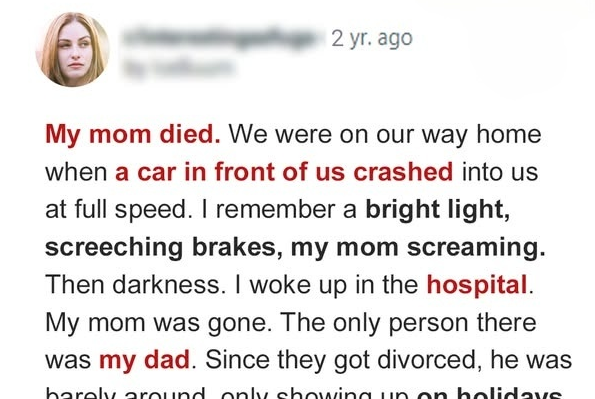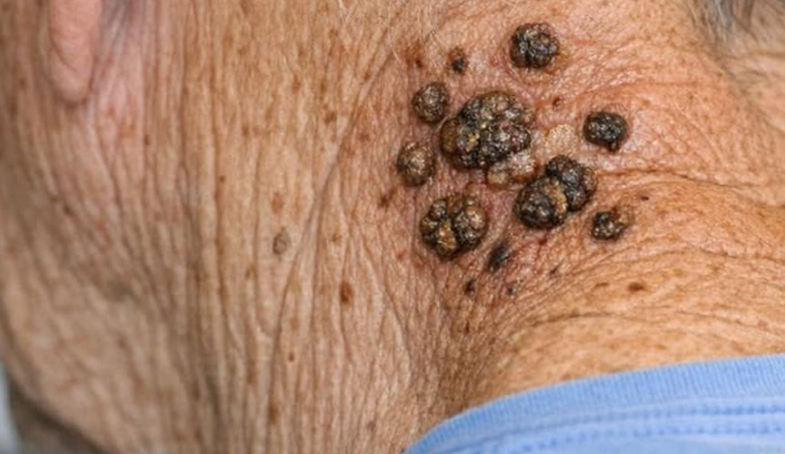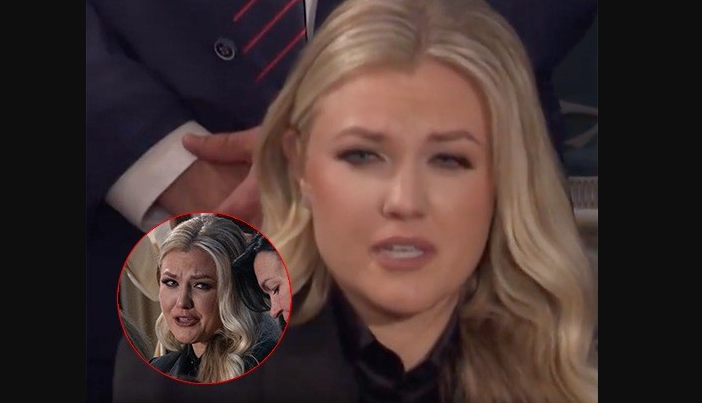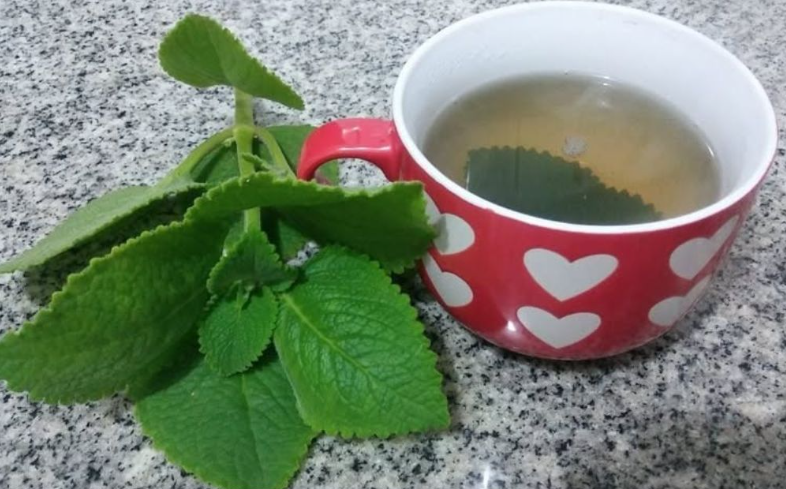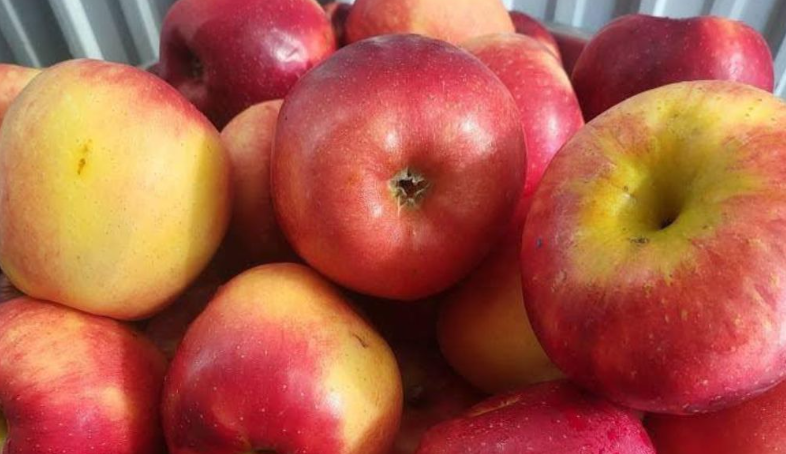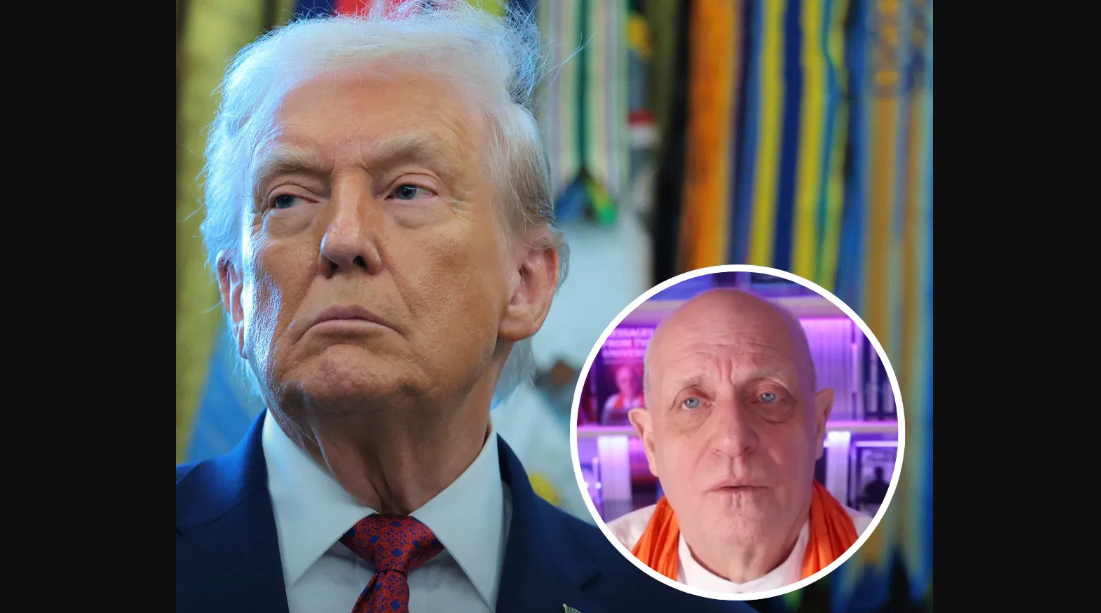The memory of that fateful night lingers in my mind, an unshakeable shadow that colors my every thought. The crash itself is a blur, lost in a haze of confusion, but certain details remain vivid: the steady patter of rain against the windshield, the warmth of Mom’s laughter filling the car, and the blinding glare of headlights rushing toward us with terrifying speed. When consciousness returned, I found myself in a sterile hospital room, the weight of an unbearable truth settling over me—Mom was gone.
Standing beside my bed was Dad, a man who felt more like a stranger than a father, his presence both unfamiliar and heavy with unspoken grief. A gnawing guilt consumed me, a relentless voice insisting that I was to blame, that somehow, in some unforgivable way, I had caused this tragedy—perhaps my hands had been on the wheel, steering us toward that irreversible moment.
Adjusting to life with Dad, Julia, and their newborn felt like stepping into a world that wasn’t mine. Their home, filled with the soft coos of the baby and the aroma of Julia’s homemade oatmeal, was warm and inviting, yet it couldn’t touch the void within me. Julia’s kind smiles and gentle attempts to draw me into their family rhythm were met with my silence, as I built walls to keep everyone at a distance. I believed I didn’t deserve their warmth, that I was an intruder in their carefully constructed life.
In the courtroom, my heart burned with a need for justice, a desperate desire to hold accountable the man I thought had stolen Mom from us. But then, fragments of memory began to surface, jagged and disorienting. My hands, gripping the steering wheel. My foot, pressing the pedal. The sickening realization hit me—I was the one driving that night.
Confessing the truth to Dad was one of the hardest moments of my life. I stood before him, trembling, expecting his face to harden with anger or his eyes to turn away in disgust. Instead, he stepped forward, wrapping me in an embrace that felt like an anchor in a storm. He didn’t speak, didn’t judge—just held me as I shattered, letting my tears soak into his shirt.
Days later, I discovered a letter tucked away in a drawer, written in Mom’s familiar handwriting. It was addressed to Dad, her words a quiet plea for him to step into the role of the father I would need if she were ever taken from us. Reading it was like hearing her voice again, steady and full of love, guiding us even from beyond. It was as if she had known, as if she had entrusted us to find our way back to each other.
The journey to healing was slow, a winding path marked by small, tentative steps. There were days when the weight of guilt and loss pressed so heavily that I could barely breathe, but there were also moments of light that began to break through.
One morning, the scent of Julia’s waffles filled the kitchen, golden and crisp, stacked high on a plate in the center of the table. As we sat together, something shifted—a laugh escaped me, genuine and unguarded, the first in what felt like a lifetime. It caught me by surprise, a sound I hadn’t thought I was capable of anymore. I turned to Dad, my voice steady but full of hope, and told him I wanted to try again—not just to survive, but to truly live. His smile was soft, his eyes bright with something like pride. “That’s all she ever wanted for you,” he said, his voice thick with emotion.
Sitting at that table, surrounded by the warmth of Julia’s cooking and the quiet presence of Dad and the baby, the air felt different—lighter, as if the heaviness of the past had begun to lift. The pain of that night couldn’t be erased, but love, I realized, had the power to mend what had been broken. For the first time since the crash, I didn’t feel like a fractured version of myself. I felt like I belonged—not defined by the loss I had endured, but lifted by the love that remained.
The days that followed brought their own challenges, but they also carried a growing sense of possibility. Julia’s patience became a steady presence, her small gestures—a cup of tea left on the counter, a gentle question about my day—building a bridge between us. The baby, with her wide, curious eyes, became an unexpected source of joy, her tiny hand wrapping around my finger as if to remind me that life was still here, waiting for me to claim it.
Dad, too, began to open up, sharing stories of Mom that I hadn’t heard before—moments from their early days together, her quirky habits, the way she’d always believed in second chances. Each story was a thread, weaving us closer, helping me see Mom not just as the loss that defined me, but as a woman who had loved fiercely and left a legacy of hope.
The guilt didn’t vanish entirely; it lingered like a quiet companion, surfacing in moments of doubt. But I learned to talk about it, to share it with Dad and Julia instead of letting it fester in silence. Therapy became a part of my routine, a space where I could unravel the tangled emotions of that night and begin to forgive myself. The therapist’s office, with its soft lighting and comfortable chairs, became a sanctuary where I could speak Mom’s name without breaking, where I could explore the idea that love and loss could coexist.
One evening, as the sun dipped below the horizon, painting the sky in hues of orange and pink, I sat on the porch with Dad. We didn’t speak much, but the silence was comfortable, filled with an understanding that didn’t need words. I thought about Mom’s letter, her belief in us, and how it had become a guiding light.
I realized that healing wasn’t about forgetting the crash or erasing the pain—it was about carrying it differently, letting it shape me without defining me. I was learning to live with the past while embracing the present, to find joy in the small moments that made up a day: the sound of Julia’s laughter, the baby’s babbling, Dad’s quiet strength.
As weeks turned into months, I began to notice changes in myself. I started joining Julia in the kitchen, learning to make her waffles, my hands clumsy but eager. I volunteered at a local community center, helping kids with their homework, finding purpose in their smiles. I even began writing letters to Mom, not to send, but to process—pouring out my fears, my hopes, my gratitude for the time we’d had. Each letter felt like a conversation, a way to keep her close while letting myself move forward.
One morning, as we gathered around the breakfast table, the baby giggled, tossing a piece of waffle onto the floor. Julia laughed, Dad shook his head with a grin, and I felt a warmth settle in my chest. The past would always be a part of me, but it no longer held me captive. I was home—not in the absence of pain, but in the presence of love that endured. Mom’s laughter, her belief in us, lived on in every moment we chose to keep going, together.
The journey wasn’t over, and perhaps it never would be. But as I looked around that table, at the family I was slowly learning to call my own, I knew I was exactly where I was meant to be. The crash had taken so much, but it hadn’t taken everything. Love, I realized, was stronger than loss, and it was that love that would carry us forward, one day, one laugh, one waffle at a time.
